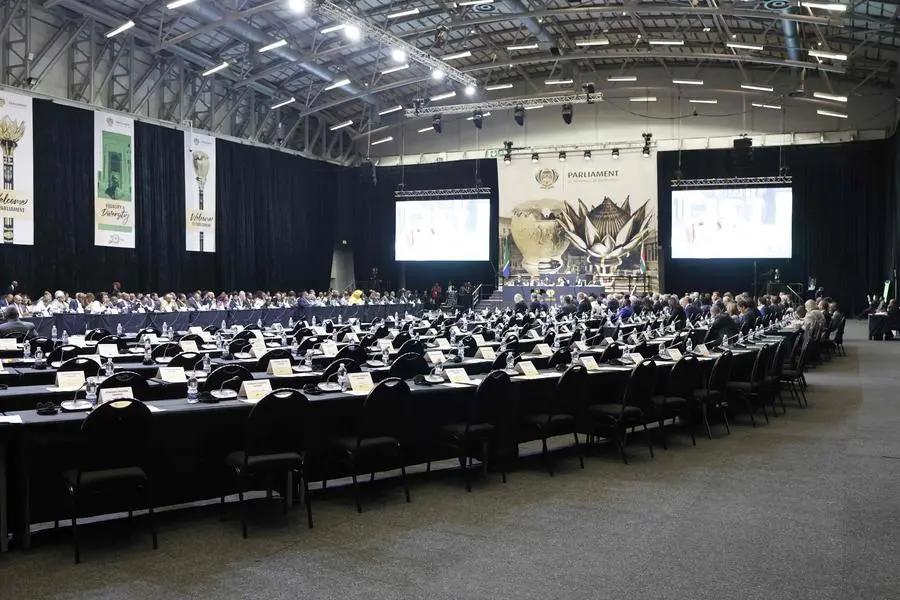PHOTO
South Africa's weakened African National Congress (ANC) and its biggest coalition partner are squabbling over key jobs in the new cabinet, media reports say, nearly a month after elections.
President Cyril Ramaphosa has called for the opening of the new parliament on July 18 to address MPs, the government said on Friday.
But no indication was given on when the highly anticipated announcement of a new cabinet would be made.
Ramaphosa, 71, who has been re-elected for a second full term, will lead what his ANC calls a government of national unity after losing its outright majority in the May 29 general election.
After the previous elections, he announced his cabinet less than a week after being inaugurated.
But in recent days, local media have reported tensions in negotiations between the ANC and the largest opposition party, the Democratic Alliance (DA), which won 87 parliamentary seats compared to the ANC's 159.
The ANC has accused the DA of making "outrageous demands" for cabinet positions in documents leaked to the press.
Several other documents detailing disagreements on positions between Ramaphosa and DA leader John Steenhuisen have circulated on social media.
Zakhele Ndlovu, politics professor at the University of KwaZulu-Natal, said the ANC's goal was to retain "strategic portfolios" such as security, finance and trade.
But, according to leaked documents, the DA also hopes to secure -- among over 10 others -- the trade and industry ministry, which the ANC has refused.
"They don't want to give those positions to the DA out of fear that the DA might use them to push their own agenda that will sideline the ANC," Ndlovu told AFP.
No official communication has been made on how many of the 30 ministries will go to the new parties in government.
The national unity government has 10 parties in total, including the DA, the Zulu nationalist Inkatha Freedom Party and other smaller groups.
The president faces having to balance demands for key ministerial posts from his own party and its new allies, as well as mediating diverging views to agree a common policy agenda on the economy and other pressing matters.
"Ramaphosa is under a lot of pressure," Ndlovu said.





















